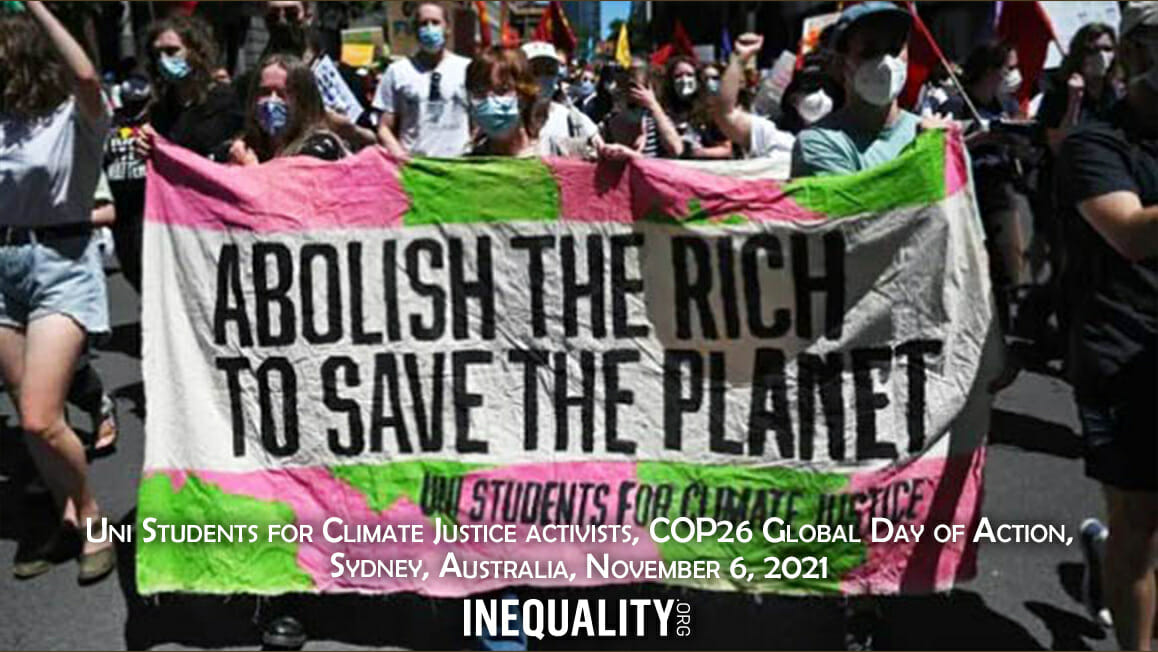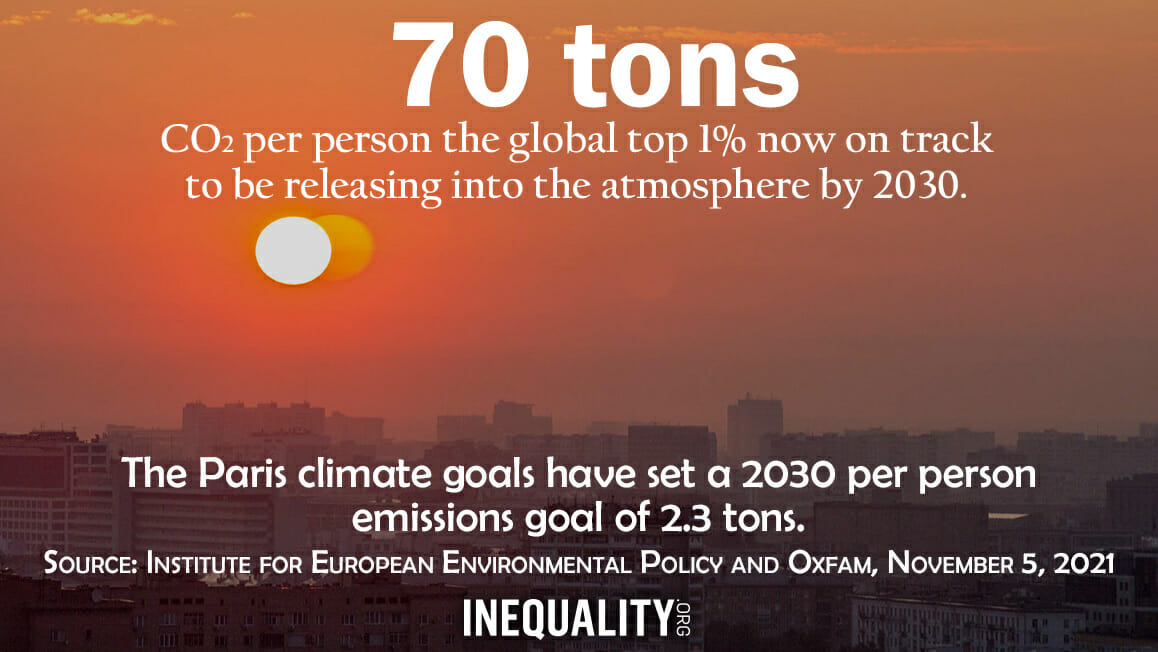| THIS WEEK |
|
We were hoping to report this afternoon that the House version of the Build Back Better Act had finally passed, that we stood a giant step closer to enacting one of the all-time largest public investments in working people and families. But that success will have to wait a bit longer.
In case you haven’t been able to keep up with the ever-changing political developments — and we don’t blame you — lawmakers have once again postponed a vote on the Build Back Better package. Congressional Progressive Caucus chair Pramila Jayapal says the vote will now happen next week. We hope so!
All the frustrating delays have had some strategic benefits. The extra time has helped secure the inclusion of several policies sure to help reduce inequality. In this week’s issue, we spotlight two of these late-breaking additions: a drug-pricing deal aimed at curbing Big Pharma’s price-gouging and a move to wedge a paid-leave plan back into the House bill. Our colleague Sarah Anderson has more below on that.
Chuck Collins and Rebekah Entralgo,
for the Institute for Policy Studies Inequality.org team
|
|
| |
|
| INEQUALITY BY THE NUMBERS |
 |
|
|
|
| |
|
| FACES ON THE FRONTLINES |
 |
| The Rich Have Paid Leave. Let’s Make it Universal. |
“We need paid leave in this country,” Ruth Martin of MomsRising reflected at a recent Capitol Hill rally, “for the moments that break our hearts and the moments that fill us with joy.”
Martin went on to share the heartbreak her own family endured as her mother suffered from lung cancer earlier this year. None of her siblings who lived nearby had paid leave. They had to live in fear of what might happen while they were working with their mother home alone. Noted Martin: “No one should risk losing their last moments with their parents because they have to clock in and clock out for work.”
Just 6 percent of the bottom tenth of U.S. wage earners currently have access to paid family leave, a big reason why a coalition that includes MomsRising is now working to secure national paid leave through the Build Back Better Act. MomsRising members have contacted lawmakers 870,000 times, and that effort has helped secure four weeks of leave in the pending House bill. But, as Sarah Anderson explains, high hurdles remain. |
|
| |
|
| WORDS OF WISDOM |
 |
|
|
|
| |
|
PETULANT PLUTOCRAT
OF THE WEEK |
 |
| Hey, Undergrads, Want to Live in My Ant Farm? |
| Grand fortunes don’t automatically turn our super rich into insufferable know-it-alls, but they certainly do give a nudge in that direction. In the case of billionaire investor and amateur architect Charles Munger, a bit more than a nudge. Munger recently gave the University of California-Santa Barbara $200 million to help build a new dorm. The gift came with a condition: UCSB would have to let Munger do the design and follow that design exactly. No problem, said the university. Big problem, said real architects after Munger’s plan went public. Munger is envisioning an 11-story dorm that houses 4,500 students, with almost all of them — 94 percent — living in tiny, windowless single-person rooms. One architect has already resigned from UCSB’s Design Review Committee, dubbing the Munger plan “unsupportable from my perspective as an architect, a parent, and a human being.” Retorts Munger: “This is not some crazy idea.” Students, meanwhile, are calling Munger’s dorm rooms “solitary confinement” units. But Munger still has full university support. Declares a UCSB spokesperson: “We are delighted to be moving forward.” |
|
| |
|
| BOLD SOLUTIONS |
 |
| Congress Moves To Help Rein In Big Pharma |
|
After weeks of pressure from advocates and progressives, Democrats in Congress have struck a deal to allow Medicare to negotiate the prices of certain pharmaceutical drugs for the first time. Under this addition to the pending Build Back Better Act, insulin will also be capped at $35 for a month's supply. Currently, a quarter of diabetics skimp or skip doses due to the high cost. The deal will also cap out-of-pocket medication expenses for seniors at $2,000 per year. The new provision falls short of fully curbing the pharmaceutical industry’s greed, but advocates and progressives in Congress see any significant relief from Big Pharma price gouging as welcome news. |
|
| |
|
| GREED AT A GLANCE |
 |
|
|
|
| |
|
| TOO MUCH |
 |
| Can We Automate Inequality Out of Automation? |
| Big Tech’s dirty little secret: Much of what passes as high-tech “progress” today merely substitutes tech for people, without appreciably enhancing productivity. What’s actually getting enhanced? The fortunes of our top Big Tech execs. Eight of the world’s ten richest people owe their wealth to Big Tech corporations. Inequality.org co-editor Sam Pizzigati has more. |
|
|
|
| |
|
| MUST READS |
This week on Inequality.org
Rebekah Entralgo, Striketober Becomes Strikesgiving as Workers Rediscover the Power of Unions. With better wages and health care facing headwinds in Washington, unions are striking to win those gains directly.
William Minter, The United States of Tax Havens. Like our billionaires at home, foreign oligarchs and despots are sheltering untold sums from taxation.
Elsewhere on the Web
Jake Johnson, Study Warns ‘Luxury Pollution’ by the Global Mega-Rich Is Imperiling the Planet, Common Dreams. The emissions from a single billionaire spaceflight alone would exceed the lifetime emissions of someone in the poorest billion people on Earth.
Alana Semuels, Two Rich Men Decided to Fund a Failing City. Some People Say They Made It Worse, Time. Kalamazoo as a case study of the power of the super rich at a time of growing wealth inequality.
Andrew Perez and Walker Bragman, Conservative Democrats’ Lucrative Career Path, Daily Poster. Democratic senators who oppose core party agenda items can’t lose — because if they do, they get paid.
John Brooks, David Gamage, and Ari Glogower, The Media Got the Billionaires Income Tax Wrong, American Prospect. A tax on billionaire investment income doesn’t happen to be either novel or unworkable.
Polly Mosendz and Eric Roston, Unlimited Sand and Money Still Won’t Save the Hamptons, Bloomberg. How long can governments deploy mountains of cash against the implacable rise of warming seas? Answer from billionaires who own beachfront manses: as long as we say so.
Richard Wolff, Why the Troubled U.S. Empire Could Quickly Fall Apart, Brave New Europe. Declining empires can slip into self-reinforcing downward spirals as the rich and powerful use their social positions to offload the costs of decline onto the mass of the population.
Ellis Simani, Robert Faturechi, and Ken Ward Jr., How These Ultrawealthy Politicians Avoided Paying Taxes, Pro Publica. Betsy DeVos, the richest Trump cabinet secretary, and plenty more.
Andrew Gregory, Thousands of adverse birth outcomes in England down to ‘alarming’ inequality, Guardian. So concludes a new study that looked at over 1 million births.
Paul Buchheit, The Super-Rich Have Taken Almost All of It, Common Dreams. Charles Koch put the billionaire worldview candidly a few years back: “I want my fair share—and that's all of it.”
David Sirota and Alex Gibney, Democrats’ Betrayals Are Jeopardizing American Democracy, Rolling Stone. If Americans keep using democratic institutions to try to fix the country, and those institutions keep prioritizing big donors, many voters may simply stop believing in democracy. |
|
| |
|
| A FINAL FIGURE |
 |
|
|
|
| |
|
| BE THE 1% (NO, NOT THAT 1%) |
 |
Our goal for 2021: that 1% of our Inequality.org subscribers become monthly sustainers and help grow our newsletter and research efforts. Be the 1%, for as little as $3 a month! |
|
|
|
| |
|
|